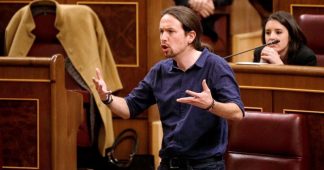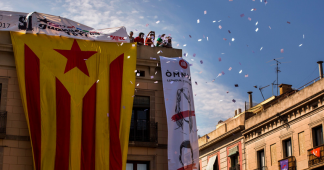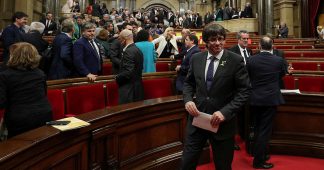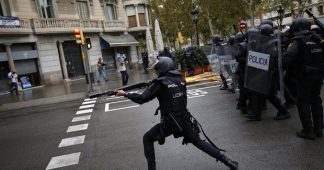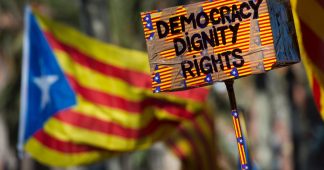Local PSC officials openly reject plan to suspend Catalonia’s self rule, while leadership denies party split
23 October 2017
If the political conflict over Catalonia is causing headaches for the Spanish and Catalan executives, it also threatens an internal crisis in the PSC party. While the leadership of the Catalan socialists, under Miquel Iceta, has consistently opposed secession, local party officials have often shown more sympathy with the right of Catalonia to decide its future. Such is the case of the mayors of Santa Coloma, Terrassa, Granollers and Castellar del Vallès, all of whom on Monday called on the PSC to “directly oppose” the application of Article 155 of the Constitution, and the suspension of Catalonia’s home rule.
PSC mayors Núria Parlón -who resigned from the PSOE executive over the Spanish socialist party’s support for Article 155- Jordi Ballart, Josep Mayoral and Ignasi Giménez released a joint statement on Saturday expressing their “radical disagreement and rejection” of the proposed takeover of Catalonia’s self-government by the authorities in Madrid, with the four officials warning of “irreparable” consequences. However, the four socialist mayors also urged the Catalan government to refrain from making a declaration of independence, as “it is not the time to take any decision that might lead to rupture,” they said.
More sympathy for self-government among local socialist officials was seen in Blanes, where mayor Miquel Lupiáñez called the implementation of Article 155 a “hijacking” of Catalan autonomy and institutions. In fact, Lupiáñez even said that ripping up his party membership “is a consideration to keep in mind.” While Lupiáñez stressed his position was “personal”, he suggested he was not the only member with doubts over the party line: “There are lots of socialists asking for the membership to be consulted on whether to support 155 or not,” he said. In fact, former PSC minister, Xavier Sabaté, also said on Monday that the membership should vote on whether the party should support Article 155 or not.
“No party split” says PSC leader
Yet, PSC party leader, Miquel Iceta, insisted on Monday that “there will be no split” in the party over Article 155, although he did not clarify how PSC senator and former Catalan president, José Montilla, plans to vote on the measures to suspend Catalonia’s self-government that go before the Spanish Senate on Friday. Montilla tweeted on Monday that he has known “for some time” which way he will vote in the Senate, but he gave no hint to what that might be.
Meanwhile, Iceta reiterated his party’s position in favor of early regional elections while continuing to call for talks. As for the voices in his party that reject Article 155, such as the local officials mentioned above, Iceta said he “appreciated” there are different opinions in the PSC and said he understood their concerns, but insisted that the best course of action would be for Puigdemont to call an election, which would allow for a “different dynamic” in which the Catalan executive would be an acting-government until the voting took place.
Yet the repercussions of the potential division in the PSC also extend to other Catalan parties. For example, the local coalition between the PDeCAT and PSC parties in the Girona council is to continue, although only because the socialist deputy mayor, Sílvia Paneque, has come out openly against Article 155. Meanwhile, the national PDeCAT party announced it would be “forced” to look into all local agreements it has with the socialists should the party support “the disappearance of autonomy and the institutions of self-government,” in the words of party leader, Marta Pascal. The ERC republican party, too, says it is looking into the different local agreements it has with PSC, with a party spokesman warning that “it is obvious that we can have no agreement with those who support 155.” The biggest local agreement with the Socialists is the one in Barcelona: Mayor Ada Colau is in a coalition with them.
